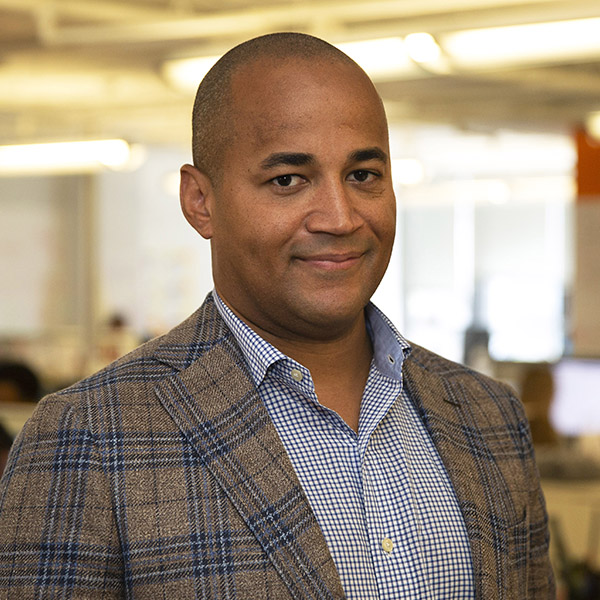The scope, scale and cunning of the college admission conspiracy that has embroiled more than 50 elites, including Hollywood stars Lori Loughlin and Felicity Huffman, CEOs, prominent lawyers and others, is nothing short of higher education’s Bernie Madoff moment. Madoff, a crestfallen Wall Street investment titan spent more than 30 years “besting” the market, in what was later revealed to be nothing more than an eye-watering $65 billion Ponzi scheme. Like the FBI investigation that unraveled the complex web of college admission cheaters who benefited from a coordinated network of corrupt college officials, prominent coaches, shadow test takers and proctors all working under the coordination of William Rick Singer as their ring leader, deals a painful blow to the American ideal of meritocracy.
Not unlike the long shadow cast by epic Ponzi schemes like Madoff’s, this scandal will make it hard to restore confidence in the system. The general public sentiment that the upper echelons of the U.S. economy are rigged only to privatize gains when they are on top and socialize losses when they fall requiring a public bail out is being reinforced. In both cases, the cynic’s view that meritocracy, hard work, authenticity and discipline are equally rewarded and cannot be bought or cheated rings untrue. Indeed, that the cheat conspiracy also leveraged the complex and opaque tax system to avoid paying taxes under the guise of charitable donations only adds insult to a deep, biting injury – one that tarnishes vital institutions, including paragons of U.S. higher education such as USC, Yale, Georgetown and Stanford, among others.
Not long before the admissions cheat ring was broken and crestfallen actors and their plausibly unwitting children had to endure the walk of shame to appear in court and post bail, America’s other national pastime of class action lawsuits were getting in gear. One particular case has generated a collective demand of $500 billion, wherein non-admitted students are seeking redress and equity. The particularly damning aspect of this case and where it bears echoes of Madoff’s market beating returns, which he perpetuated over the years by paying the earliest investors with the newest investor’s money, is that people were given rubber checks linked to an empty vault.
These same rubber checks have been handed to the school-going public and the educational aspirants among them, for whom the dream of a college education and the certain financial risks they undertake to achieve it for uncertain professional and social returns. The economic risks of a college education has saddled a generation of graduates, those whose parents and guardians do not enjoy the embarrassment of riches and the “luxury” of cheating like the 50 admission cheat conspirators, with more than $1.5 trillion in debt. Meanwhile, leaving the same bad taste of the socialization of losses and the privatization of gain, the costs of higher education outpaces wage inflation in the U.S. by a factor of 8, making the attainment of the foundation of the American Dream nearly impossible to reach. Add to this the growing disconnect between a college degree – in most disciplines – and its relevancy in a fast moving and rapidly eroding workforce where the vision of the future of work is not pretty – and frustration is reaching a tipping point.
Underworked and overburdened would be acceptable, as it has been throughout U.S. history, when the principles that hard work, self-determination and meritocracy serve as guiding forces. Indeed, in earlier perhaps simpler times, people might have accepted that the occasional Robber Baron or industrial magnate who endowed a university or added a wing to a library might have a preferred place in line or special access is one thing. An egregious cheating ring of this variety, however, is so unseemly that it will surely engender a vindictive backlash. When the dust settles higher education must ask itself hard questions about its admissions standards in the first place, especially in a country where the educational system begins with a massive ZIP code lottery on where a decent public education can be had for the tax payer dollar and ends with a mafia-like admissions cheating ring catering to the well-heeled. While this sad reality is certainly not true of all higher education and the elite institutions implicated in this scandal, it should provoke system-wide questions on restoring trust and removing the opacity that enabled this conspiracy to fester for so long.
Like the #MeToo movement, which has demanded a right-sizing of justice and accountability irrespective of the legal statute of limitations, this scandal risks blowing apart the cover of time that may have given hundreds of past cheaters comfort that they skirted by on the easy street. Indeed, the quest for accountability has already cost higher education $500 million as the Larry Nassar sexual abuse case at Michigan State University, which paid a big percentage of its endowment as a legal settlement. While the financial calculus could be damming in this college admissions case and the full cost is still unraveling as more names are likely to come out and more rings likely to be disclosed, the reputational tarnish on higher education and the cottage industries surrounding it will take long to restore. Indeed, more damning still is the risk that this scandal prompts a look-back at prior graduates, or among those graduates themselves, as they question the value of their hard-earned degrees.
As has become an uncomfortable reality following scandals of this nature, how long the silence lasts before implicated institutions come forward with their plans and their discovery process will be telling. While meritocracy may have taken a hit with these rather obvious and sad revelations, the rest of us should take solace that even in an unfair and rigged system, hard work, personal pride and an attained education remain great equalizers.
